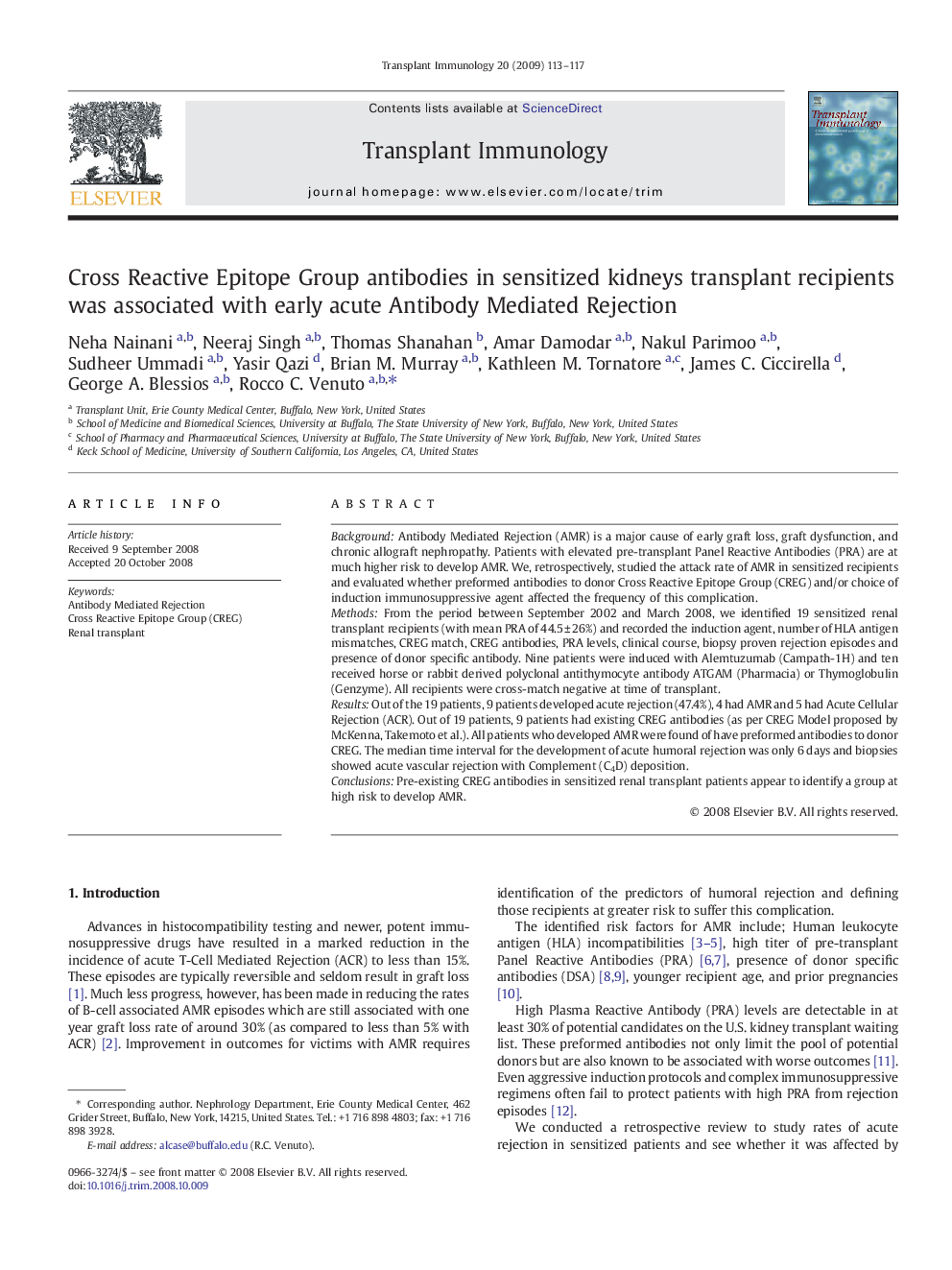| Article ID | Journal | Published Year | Pages | File Type |
|---|---|---|---|---|
| 3392442 | Transplant Immunology | 2009 | 5 Pages |
BackgroundAntibody Mediated Rejection (AMR) is a major cause of early graft loss, graft dysfunction, and chronic allograft nephropathy. Patients with elevated pre-transplant Panel Reactive Antibodies (PRA) are at much higher risk to develop AMR. We, retrospectively, studied the attack rate of AMR in sensitized recipients and evaluated whether preformed antibodies to donor Cross Reactive Epitope Group (CREG) and/or choice of induction immunosuppressive agent affected the frequency of this complication.MethodsFrom the period between September 2002 and March 2008, we identified 19 sensitized renal transplant recipients (with mean PRA of 44.5 ± 26%) and recorded the induction agent, number of HLA antigen mismatches, CREG match, CREG antibodies, PRA levels, clinical course, biopsy proven rejection episodes and presence of donor specific antibody. Nine patients were induced with Alemtuzumab (Campath-1H) and ten received horse or rabbit derived polyclonal antithymocyte antibody ATGAM (Pharmacia) or Thymoglobulin (Genzyme). All recipients were cross-match negative at time of transplant.ResultsOut of the 19 patients, 9 patients developed acute rejection (47.4%), 4 had AMR and 5 had Acute Cellular Rejection (ACR). Out of 19 patients, 9 patients had existing CREG antibodies (as per CREG Model proposed by McKenna, Takemoto et al.). All patients who developed AMR were found of have preformed antibodies to donor CREG. The median time interval for the development of acute humoral rejection was only 6 days and biopsies showed acute vascular rejection with Complement (C4D) deposition.ConclusionsPre-existing CREG antibodies in sensitized renal transplant patients appear to identify a group at high risk to develop AMR.
